
views
- Diarrhea is a valid reason to stay home from school, so tell your parent what’s going on if you’re still in high school or grade school.
- Use the bathroom during each break and don’t hesitate to leave class without permission if you need to go.
- Drink plenty of water and eat a light lunch of bread, bananas, and water; skip the fatty or greasy food to avoid upsetting your stomach.
Surviving the School Day
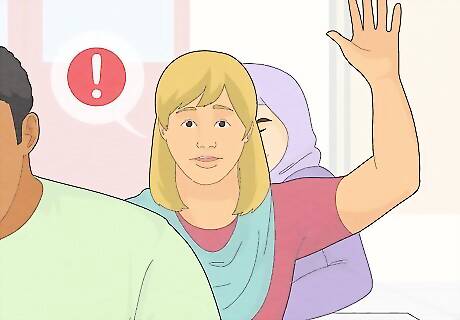
Reach out to your parents (or your teachers) to get help. If you haven’t told a parent about your diarrhea and you want to get picked up, text or call them as soon as you can. Diarrhea is a sickness and it justifies staying home, so they might agree to call the school and come get you. If you're staying at school but you'll need to leave for the bathroom regularly, ask to talk to your teacher privately and tell them you’re having stomach problems. They’ll might dismiss you to the nurse so you can deal with the issue privately, or let you use the bathroom as much as you need. It’s okay to ask your teacher if you can talk outside of the classroom if you are embarrassed and want to let them know what’s going on without anyone around.
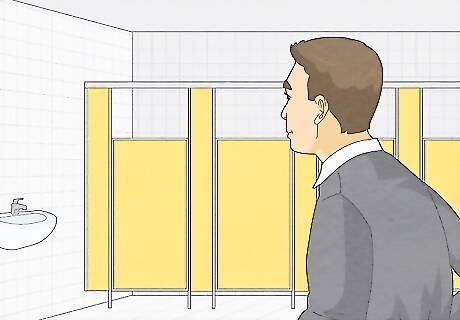
Use the bathroom during each of your breaks. Even if you feel like you don’t have to go, try and use the bathroom whenever you have a bathroom break or time between classes. This may help ensure that you don’t experience any flare-ups during class or another inconvenient time. If you end up late for class, explain to your teacher that you’re sick and apologize for being tardy. Put your own health first. If you're having trouble communicating with your teacher or are not receiving the help you need, do not hesitate to put your own wellness first, even if it means walking out of the class without permission.
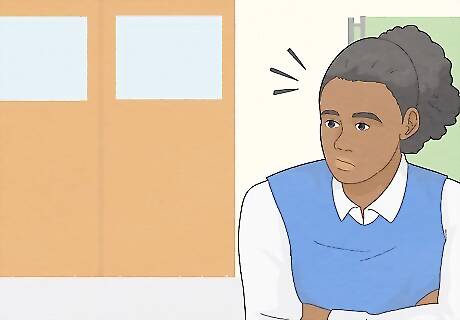
Sit near the exit for each class. If you have to go to the bathroom often, let your teacher know what’s going on and ask if you can sit next to the door. If it’s open seating, grab the nearest seat. This way, you can slip out if you feel ill without disrupting the class or drawing attention to yourself. Consider asking to sit on the floor next to the door if necessary. If anyone asks, just say “my back is killing me today and sitting on those chairs makes it worse.” Avoid making a commotion if you do leave. Get up as gently as possible and quietly open the door to avoid drawing attention to yourself.
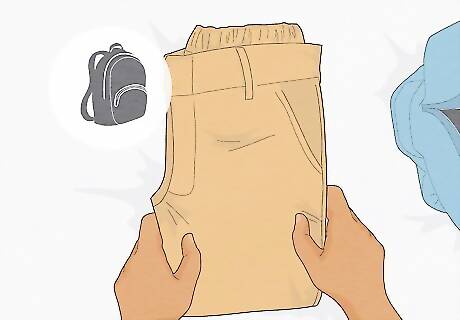
Bring a change of clothing just in case of an emergency. Before you leave for school, pack an extra set of underwear and pants. The odds are extremely low you’ll need them, but they’ll help relieve any anxiety you feel about having an accident at a minimum. If you’re already at school, ask the school nurse if they have a spare set of clothing or call your parents to see if they can bring you new clothes. Cover the back of your trousers with your bookbag or shirt until you can get to a bathroom or the nurse’s office to change. Bring identical clothing if you can. This way, nobody will notice if you change. If anyone asks, you can say “I ate too much at lunch and my other jeans were uncomfortably tight" or "I spilled pop on my other pair."
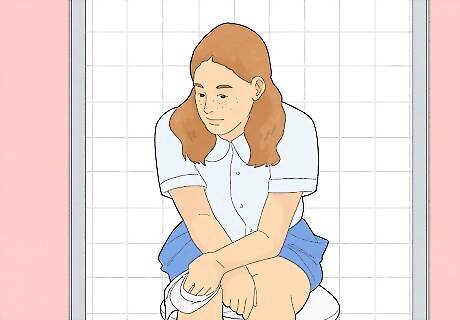
Do your best to not worry about it. It’s easy to feel ashamed, embarrassed, or anxious if you’re experiencing diarrhea at school. If it helps, remember that everyone poops and everybody will experience diarrhea at some point in their lives. You will get through this, so try to not fixate on the diarrhea. If the diarrhea is the result of irritable bowel syndrome (IBS), you’ll actually be less likely to experience the urge to poop if you worry about it.
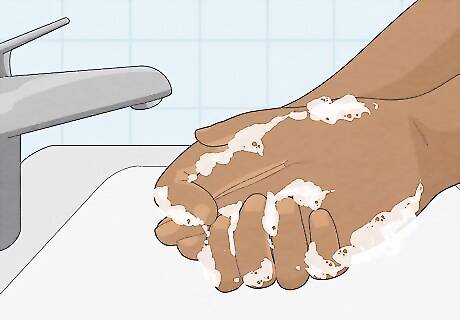
Wash your hands with soap and water after each bathroom trip. Each time you use the bathroom, thoroughly clean your hands. This helps prevent the spread of diarrhea to others, and it may keep you from getting sicker than you already are. Rinse your hands with warm water and then lather with soap for at least 20 seconds, which is about as long as singing “Happy Birthday” twice. Rinse your hands again thoroughly to clean off any soap residue. Use a hand sanitizer with at least 60% alcohol if soap and water aren’t available. Cover both the front and back of each of your hands and rub in the sanitizer the same way you would soap.
Dealing with the Physical Symptoms
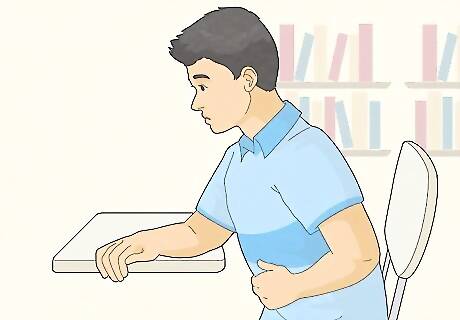
Be as cool and Zen as possible to keep your stomach calm. Feeling panicky or anxious about diarrhea may make it worse since the body’s response to emergencies is to loosen bowel control. By talking yourself through it and reframing the situation, you can calm yourself and your bowels. Remember: stomach issues are totally normal. Everyone gets them. Avoid thoughts such as “what if I don’t make it to the bathroom” and “this is awful.” Instead, remember that accidents are rare and that you’ve never had one or that if you stay calm, your bowels will stay calm, too. Do some deep breathing exercises to keep you and your intestines calm. Some people actually get diarrhea when they're anxious or nervous about other things. If this is your situation, know that it's totally normal. Your stomach issues will pass when your stress does, and you can help them pass even faster using the breathing exercises mentioned above.
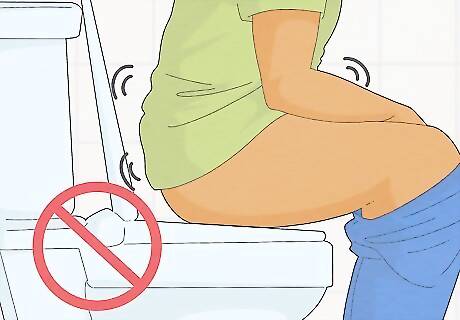
Resist squeezing or straining your rectum. It’s common to naturally squeeze or contract the muscles around your rectum if you have diarrhea. However, these actions can actually make diarrhea worse by causing muscle fatigue, weakness, pain, and cramping. Avoid straining or squeezing as much as you can. Instead, just take your time and don’t force it on the toilet. This is true when you’re actually using the bathroom, but it’s also good guidance when it comes to “holding it” in the classroom. Try not to flex or squeeze unless it’s 100% necessary.
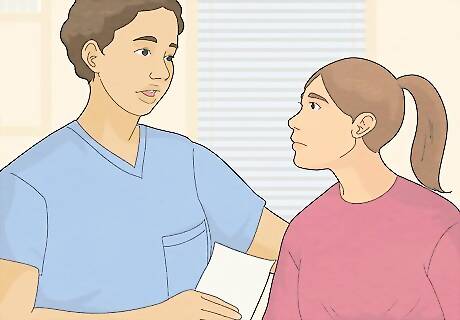
See the school nurse for medication or safe refuge. If diarrhea strikes during school, let the school nurse know. They’ll either give you something for your stomach, or provide a safe and empathetic space to stay while you’re dealing with stomach pain or a nasty fit of diarrhea. Be open with the nurse and don’t feel any shame or embarrassment. They’re used to seeing all kinds of medical issues. Ask the nurse if they can give you an excuse for your teachers, a place to lie down, or even some medication.
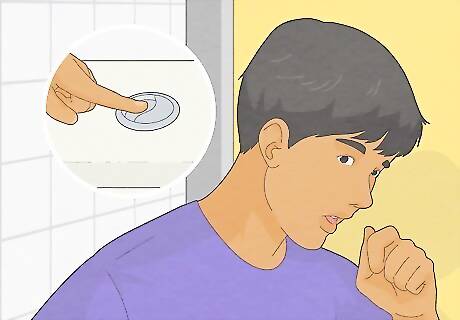
Distract people from tummy sounds if you’re self-conscious. The odds are extremely low people can hear your stomach making noise, and even if they do, they’ll just think you’re hungry. Still, you can cover the noise up if you want to disguise it. Distract from the sound by coughing, sneezing, shifting in your chair, or laughing if the timing is appropriate. If you’re trying to distract people from the sound when you’re using the toilet, coughing loudly or flushing the toilet while you’re pooping can cover the sound up.
Treating the Diarrhea

Drink plenty of clear liquids. Chances are that you’re losing a lot of fluids and valuable electrolytes if you have diarrhea. Staying hydrated will help you feel better and flush out your system quickly. Have at least 8-10 glasses of water over the course of the day, and aim to get a glass of water after each bowel movement. If you can’t get a cup of water at school, at least hit the water fountain up as often as you possibly can. Consider carrying your liquid with you in a bottle or thermos. Let your teacher or the school nurse know why you have it in case there is a problem.
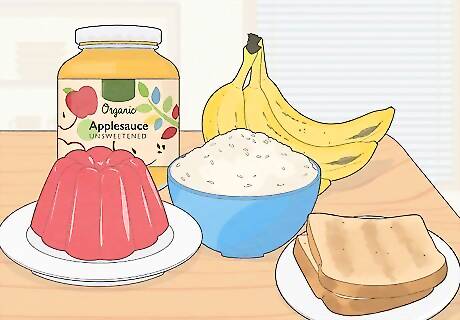
Eat simple and easy-to-digest foods. If you have diarrhea, your stomach is probably very upset and needs a chance to rest. Eating according to the BRAT diet, which stands for bananas, rice, applesauce, and toast. This will help settle your stomach and intestinal tract as well as replace electrolytes. Have boiled potatoes, crackers, and gelatin at lunch if you can. Consider carrying your lunch and snacks such as soda crackers can also help ease your stomach. Other good options include pretzels, apricots, and sports drinks. If you bring perishable foods to school, make sure that you can put your lunch in a refrigerator until it's time to eat it. You can also keep your food cold with ice packs in your lunch box.

Skip heavy, greasy, fatty, or spicy foods. It’s important to be gentle on your stomach if you are hungry when you have diarrhea. Stay away from spicy, fatty, or fried foods as well as dairy products. These may further upset your stomach and make your diarrhea worse. Avoid adding any spices to your food or eating spicy meals at lunch, such as Mexican food. These can irritate your stomach lining. Ask if there are alternatives to eat and drink for lunch if you can’t find something other than the daily meal and milk.

Take some diarrhea medication if you can. Ask a teacher, parent, or the school nurse for some medication, like Imodium or Pepto-Bismol. These may reduce the number of bowel movements you have and put your mind at ease in class or when you’re walking through the halls. Be aware that some medications don’t work for all kinds of diarrhea and may not be safe for you depending on your other medical conditions. Always check with a parent or medical professional if you aren’t sure! Make sure to follow the packaging instructions if you do take any meds. If you don’t, it could make you sicker.
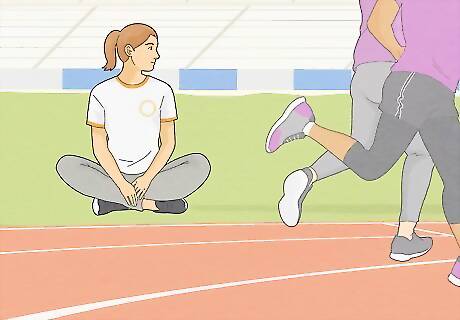
Take it easy and avoid doing more than necessary. Moving around too much may also make you feel worse and as though you need to use the bathroom more often. Don’t exert yourself more than you need to in your classes. Consider sitting out for classes such as gym or extracurricular sports. Give your teachers a note from your parents explaining that you are sick and need to not exert yourself too much if necessary.
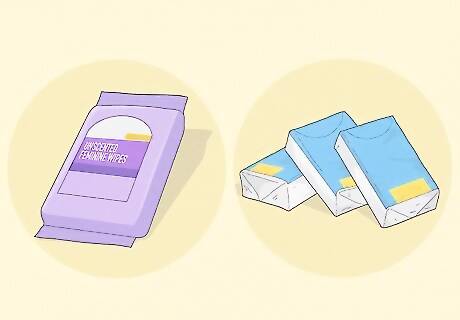
Carry wipes in case you need to clean up or soothe yourself. It’s common for your bum to get irritated by wiping too often and rough school toilet paper can make this worse. Keep some soft and moist wipes in your bag to prevent or soothe any discomfort you may have. These are ideal for clean ups or soothing pain after using the bathroom. Try either regular moist wipes or even baby wipes, which are generally gentler on the skin. However, don't flush anything except normal toilet paper down the drain, as baby wipes can clog sewers.












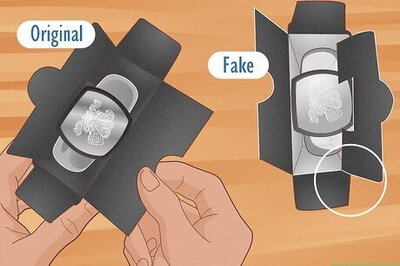


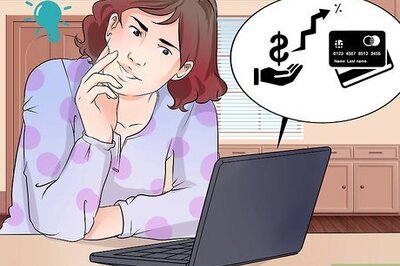


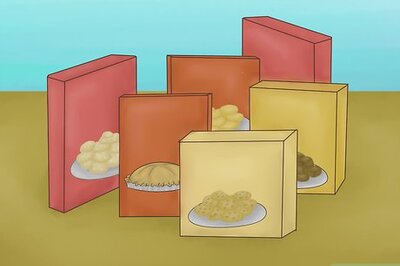
Comments
0 comment